How Isabel Powell (C’24) Uses Public Health Research to Improve Lives Around the World
Graduating senior Isabel Powell (C’24) reflects on public health research conducted around the globe during her time as an undergraduate.
Read Isabel’s Story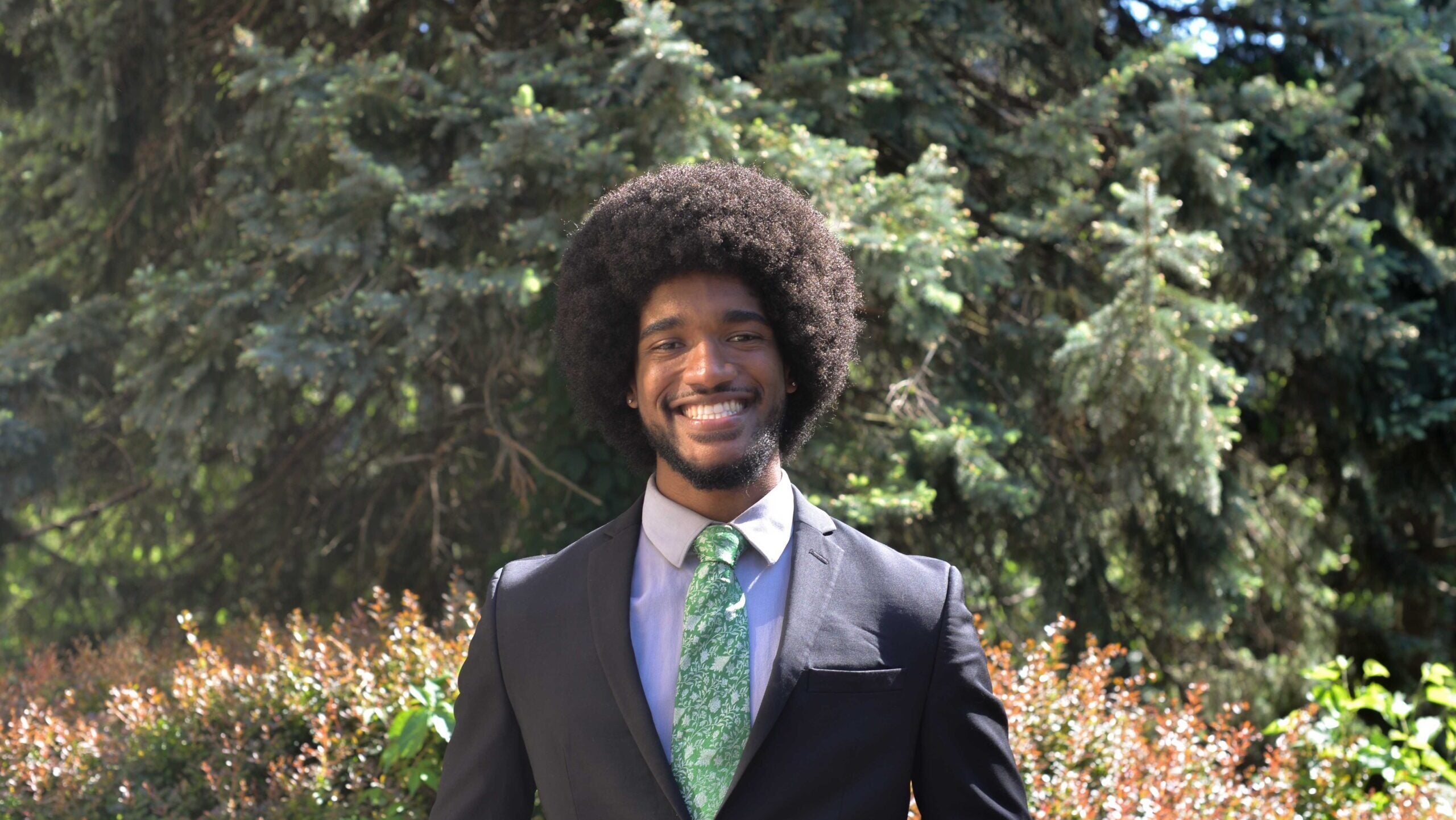
You’re as likely to find Akil Cole (C’24) teaching his peers how to plant seeds and weed a garden as you are to stumble upon him in the podcast studio, where he interviews the people fighting global climate catastrophe at the local level.
Throughout the last four years, Cole has studied community-based, restorative agriculture efforts and believes that they’re a tangible way for regular people to change the world.
“I don’t think everyone should be a farmer,” laughed Cole. “That’s not my vision of the world, but it would be good if more people were at least exposed to gardening. I want people to understand that land is something that’s more than just an asset to buy — it’s not a dead thing on a balance sheet, it’s teeming with life and deeply connected to everyone.”
Since his first year as a Hoya, Cole has been involved with the Community Ecology Institute (CEI), a nonprofit organization in Columbia, Maryland that runs a 6.4-acre organic farm, which serves as a community center, art space and locus for all those interested in imagining a better tomorrow. Today, Cole serves as a member of the CEI Board of Directors. Four years ago, that would have seemed like a crazy idea.
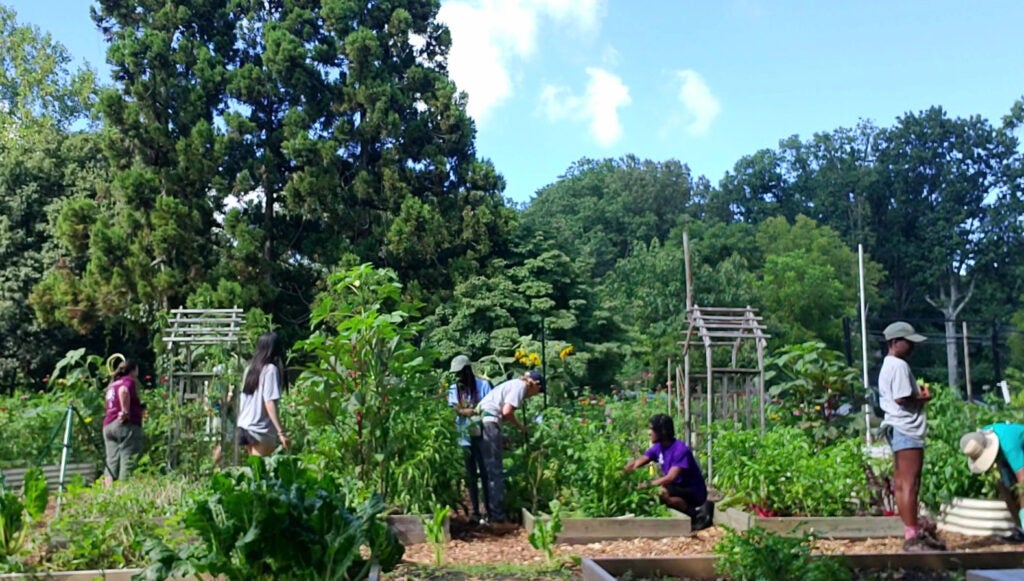
Akil Cole (C’24) and other CEI volunteers weed at Freetown Farm in 2022.
Cole didn’t apply to Georgetown with the expectation that he’d study, and become a proponent for, community gardening. Rather, attending a school in Washington, DC, he figured, would be a good way to become involved with policy or international affairs. Maybe, someday, that would lead to law school.
He remembers the moment that his undergraduate career was changed forever: It was over Zoom and he was sitting at home in Miami, Florida, listening to a guest lecture in an introductory course on environmental studies.
“We had a guest speaker, Dr. Chiara D’Amore, who is the executive director of the Community Ecology Institute, and she blew my mind,” remembered Cole. “I didn’t know anything about farming, nonprofit work, regenerative agriculture or community-based land initiatives, but after she was done speaking I knew that I had to find a way to be connected to all of it.”
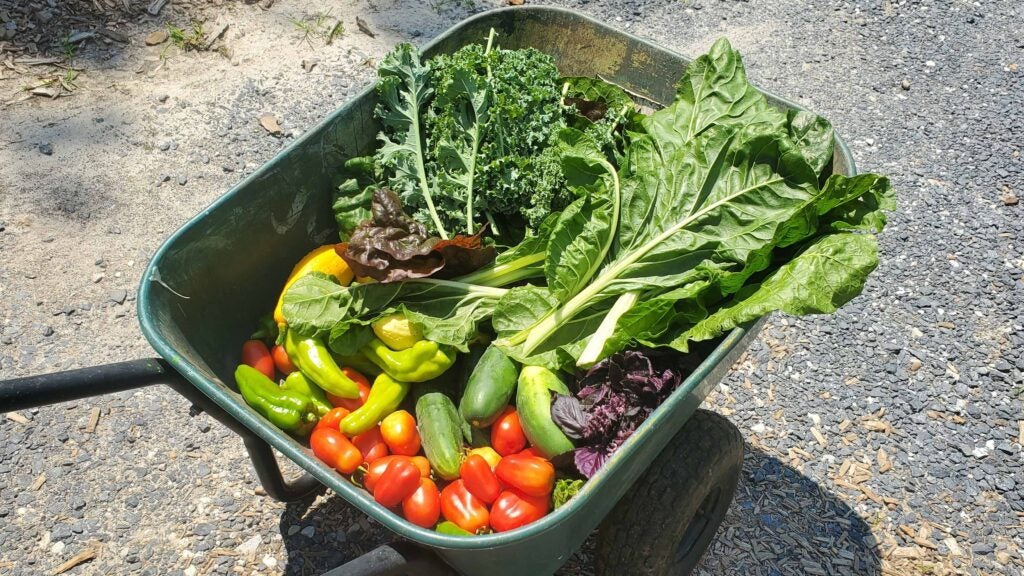
Part of the summer harvest from Freetown Farm. Photo by Akil Cole (C’24).
It was the height of the pandemic and Cole knew there was no chance of connecting in person so he sent her an email: “I was like, hey, I don’t know how I’m going to get involved because I’m in Florida and you’re in Maryland, and there’s a global pandemic, but I want to do something.”
Eventually, D’Amore and Cole landed on an idea: He could create a podcast for the institute. Community Blooms, the byproduct of their collaboration, shares stories from an array of experts and practitioners on the frontlines of the climate crisis who are building optimism and community through their work in the environment, health, education, and equity. As he began building out the podcast, Cole couldn’t wait to get to Maryland and learn more.
Over the next two summers, he did just that. Cole was able to get his hands dirty through a Royden B. Davis Fellowship. The fellowship, which is awarded by the College of Arts & Sciences, empowers undergraduates to pursue transformative educational experiences through fieldwork, labwork, independent study, unpaid internships and all kinds of real-world learning. As a Davis Fellow, Cole served as the co-coordinator for a summer internship program at CEI’s Freetown Farm, where he supervised high school and college-aged interns and continued building his own knowledge base around sustainable agriculture practices that promote biodiversity.
“It was at Freetown Farm that I realized that political science and international affairs were not going to accomplish what I wanted to do,” reflected Cole. “It was there that I realized all these things were intersecting — environmental studies, environmental science and community organizing alongside notions of peace and justice. All these seemingly disparate ideas were coming together in this place and being put into practice.”
Akil decided that he’d spend the remainder of his time as an undergraduate trying to figure out exactly how all those things could fit together and, importantly, be replicated elsewhere. He found the interdisciplinary studies major, which allowed Cole to thread that needle between his different interests and areas of inquiry.
“I felt more intellectually equipped to study and practice sustainability, ecology, conservation and agriculture,” said Cole.
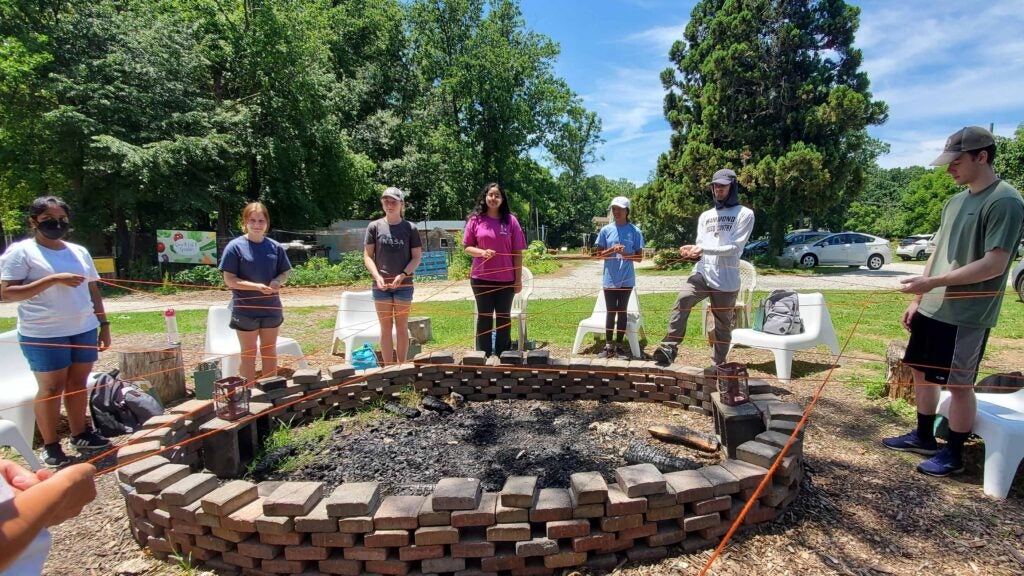
Akil Cole (C’24) leads an intention-setting exercise at the Community Ecology Institute.
Thrilled by what he’d learned at Freetown Farm, Cole wanted to broaden the lens through which he was studying regenerative agriculture and community-based land initiatives. Georgetown’s Social Transformation in South Africa study abroad course and a Frederick Douglass Global Fellowship allowed Cole to spend the summer before his senior year in Cape Town, South Africa.
In Cape Town, Cole studied capacity-building work with a couple of community-based organizations, including Triangle Project. An organization that provides clinical, medical and social care for the local LGBTQ community, members of Triangle Project realized that they could be doing more to get healthy, sustainable food into the hands of those in need. And so the grassroots group, Queer Food Growing Collective, was born.
As he listened to stories from gardeners in the Collective, Cole was pointed towards a separate nonprofit organization: Neighbourhood Gardens.
“Neighbourhood Gardens runs several community gardens within the Cape Town area,” said Cole. “These spaces bring people together to grow food, learn how to cultivate and build healthier communities.”
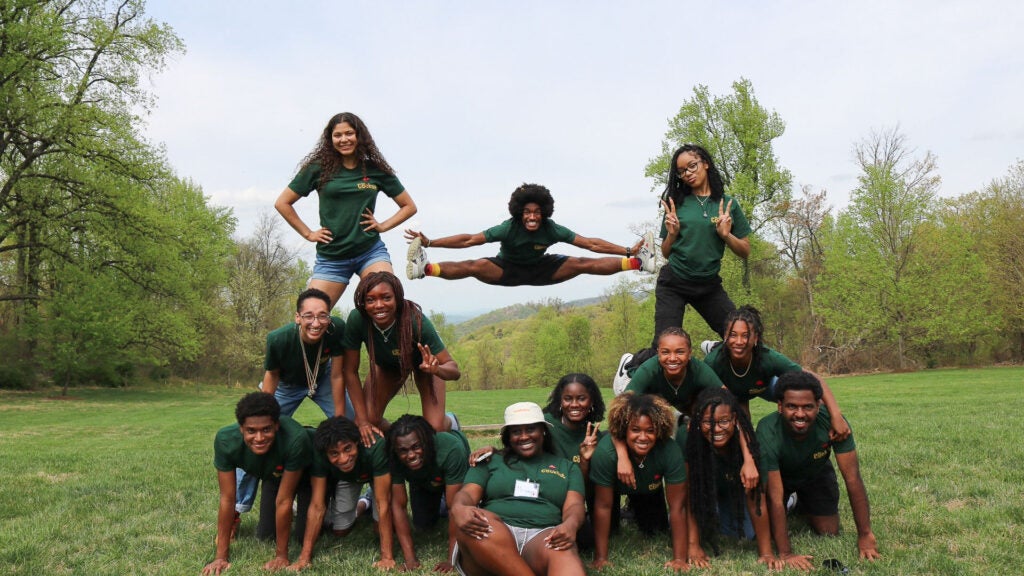
Akil Cole (C’24) serving as a student coordinator at The Cookout, a retreat organized by and for Black students at Georgetown.
One particularly stunning transformation came about after the organization transformed a former garbage heap into a community space full of Indigenous plants. That transformation, centered around community and land, is what excites Cole the most.
“There’s this magic that happens when people come together and they’re engaged in these collaborative activities,” said Cole. “I’ve seen this magic in Columbia, Maryland and in Cape Town. At the center of it is people working in community gardens and growing food.”
Cole, who is still producing the podcast for CEI and beating the drum for all things gardening, is excited to continue turning the world green after graduating.
“We’re disconnected from a lot of things but on a fundamental level we are disconnected from land and the things that humans need to survive,” said Cole. “And I think that’s disconcerting. But it was heartening to see, in two completely different contexts people are coming together to better understand how we are supposed to survive and bring people back together.
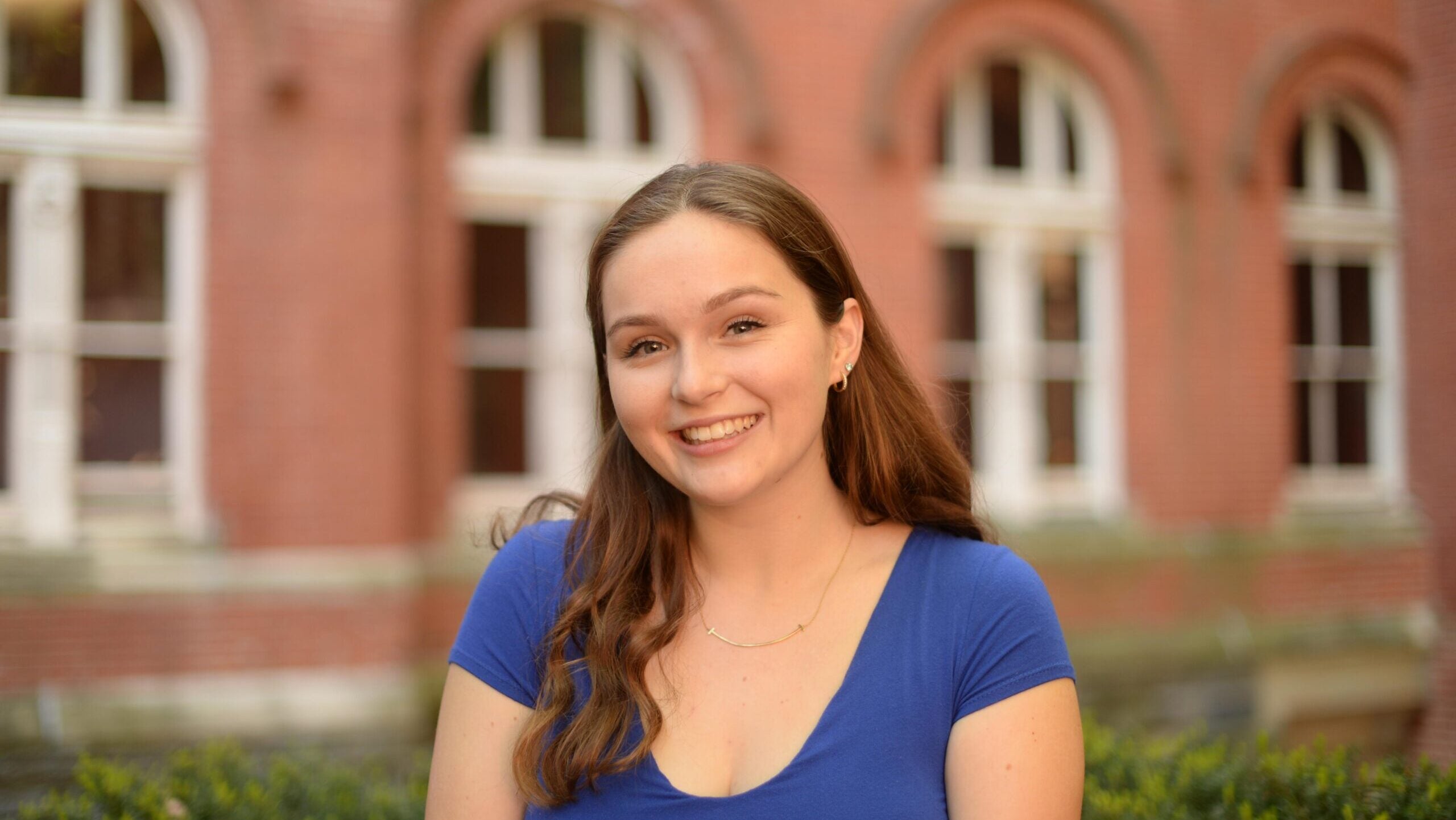
Graduating senior Isabel Powell (C’24) reflects on public health research conducted around the globe during her time as an undergraduate.
Read Isabel’s Story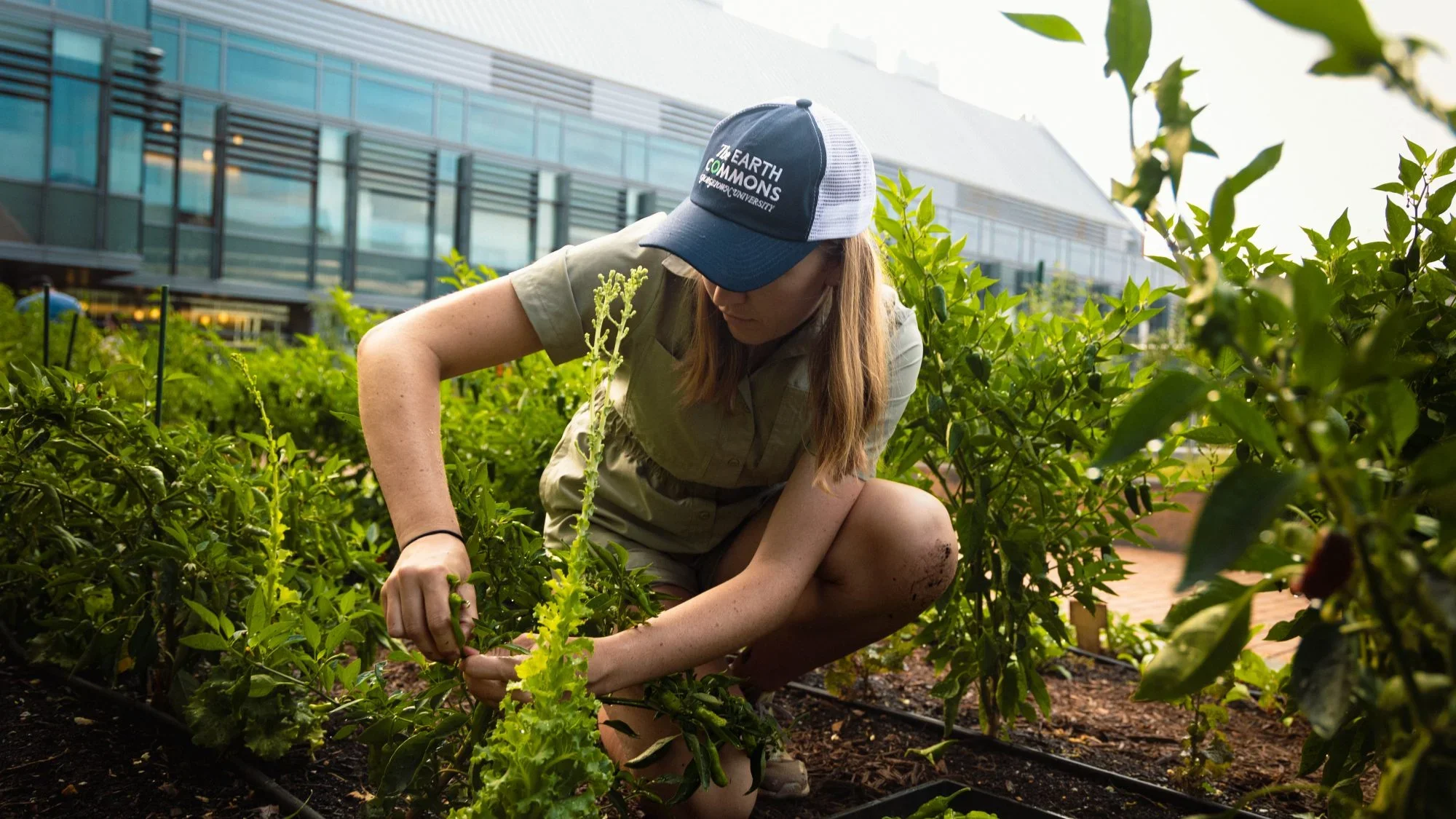
The Hoya Harvest Garden may look like a garden, but it’s much more. The living laboratory generates fresh produce for Georgetown’s food pantry and offers hands-on learning experiences for students.
Read Hoya Harvert Garden Story